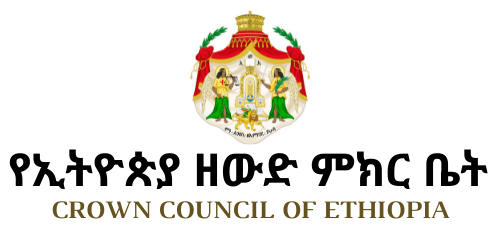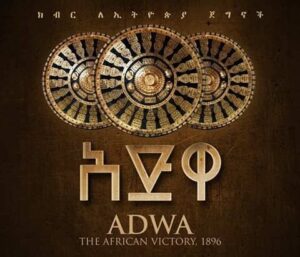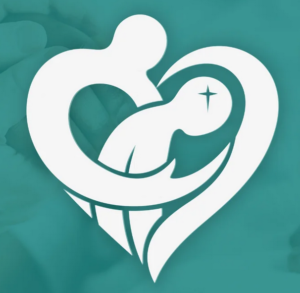Remarks by HIH Le’ul Ermias Sahle-Selassie Haile-Selassie
President of The Crown Council of Ethiopia
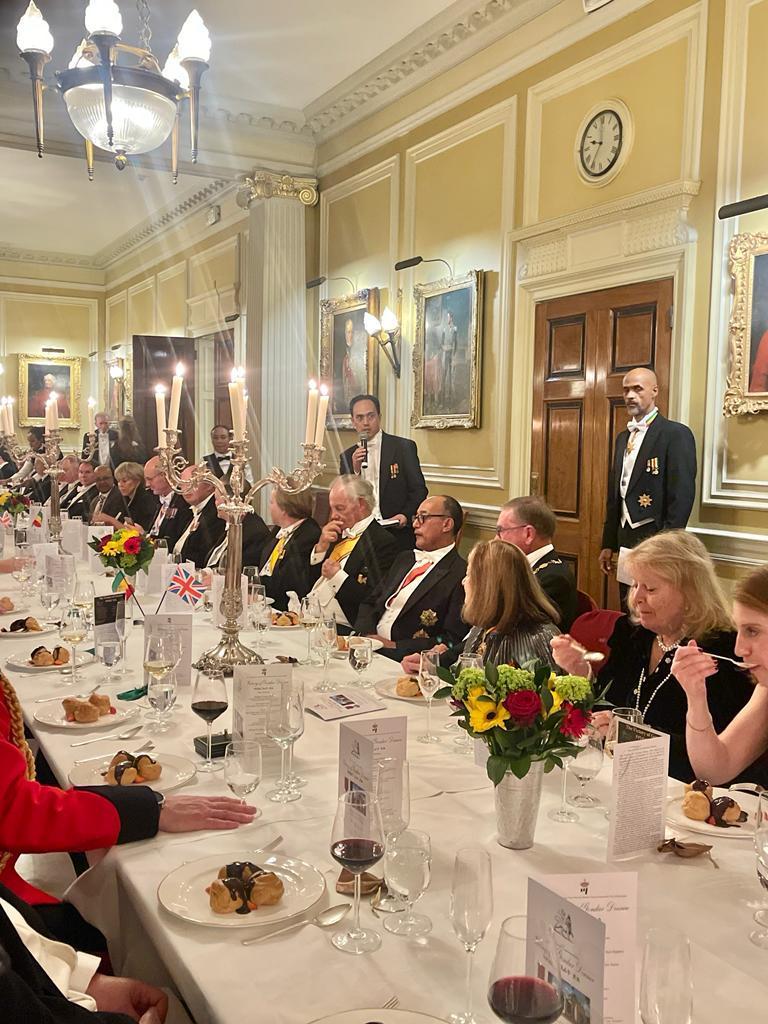
Dear Friends.
Let me call you that, because nothing differentiates us tonight.
And I thank Almighty God for that.
We are here because of the bond of our love for freedom. We love Ethiopia, and crave its freedom.
And we love the Britain and her Commonwealth which helped the great Emperor, my Grandfather His Imperial Majesty Emperor Haile Selassie I, to achieve the freedom and salvation of Ethiopia.
The years of abandonment by the world scarred my Grandfather and the Ethiopian People. The Victory at Gondar — even though the world forgot it when, two weeks afterwards, Japan attacked Pearl Harbor, bringing the US into the war — … well, the Victory at Gondar began our healing, and accelerated the path by the Emperor toward making Ethiopia a true confederation of lands and people under a democratic, parliamentary constitutional monarchy, similar to the pattern of the United Kingdom.
Our path to that goal was interrupted, even as the Emperor drafted a new Constitution in 1973 to implement the final steps in this, and as my Grandfather was overthrown and then killed by the Dergue. They killed or imprisoned so many of my family and the families of so many Ethiopians, and we mourn them as we mourn the loss of the Arbegnoch — the Patriots — who gave us the Gondar Victory. And those from Britain, Kenya, Australia, and elsewhere, who lie in graves, so many unmarked graves, in the Ethiopia which has become their eternal rest.
This was an achievement not only for Ethiopia, but for the world. We celebrate the 82nd anniversary of that painful relief and victory, at Gondar, where we saw the first territory seized by the Axis powers in World War II freed from brutal occupation. We also cannot forget that the invasion of Ethiopia in 1935 was the true start of World War II. And we Ethiopians suffered, apparently without friends or support, until the relief began after 1939, and final victory for Ethiopia was delivered two years later.
But where are we Ethiopians today? I say that in all the chaos of the continuing conflict which is the legacy of that dreadful Dergue and its successor communist and autocratic governments, we are, in fact, closer to returning to the Emperor’s dream of democracy, and a unity of Ethiopian spirit than we have been for almost five decades.
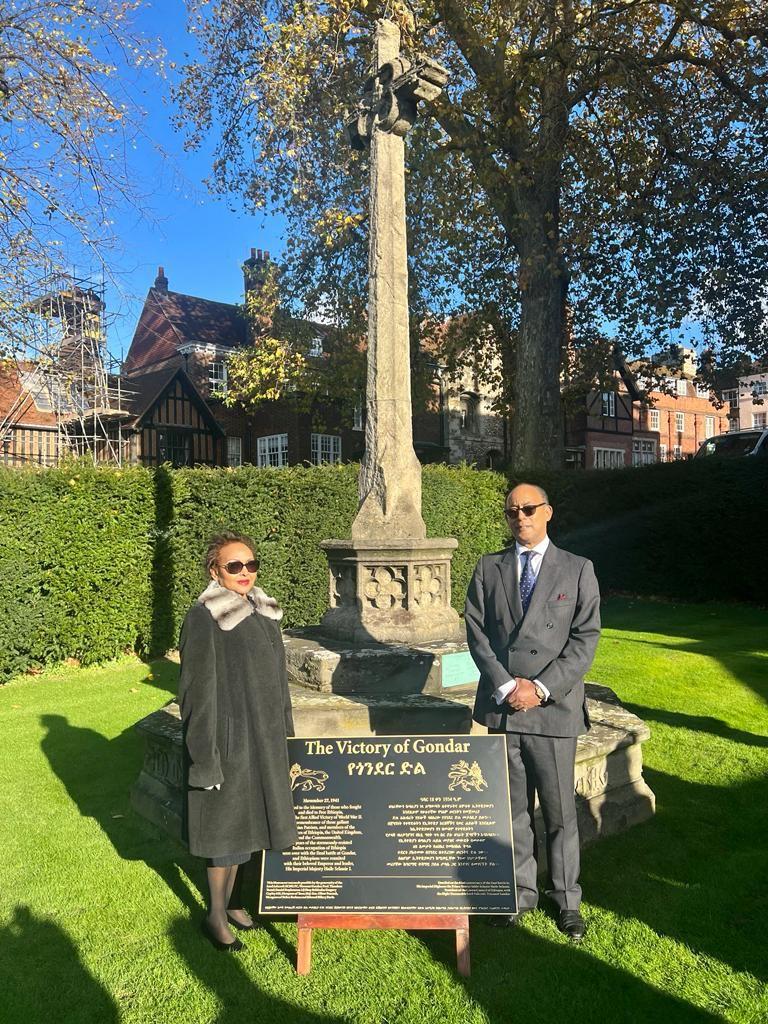
Why is this 82nd anniversary of the Gondar Victory so important?
This week, through the graciousness of His Majesty King Charles III — for whom we call God’s Blessing on his new reign — we were able to unveil a new Memorial Plaque at St. George’s Chapel in Windsor Castle to the memory of those who made the Gondar Victory possible. This was a major milestone, not only in modern Anglo-Ethiopian friendship, but also in recognising the strategic importance of Ethiopia to the security of the great global trade link of the Red Sea and Suez Canal. And in recognising the bonds between the Ethiopian and British crowns, which eventually became bonds between eternally linked brothers.
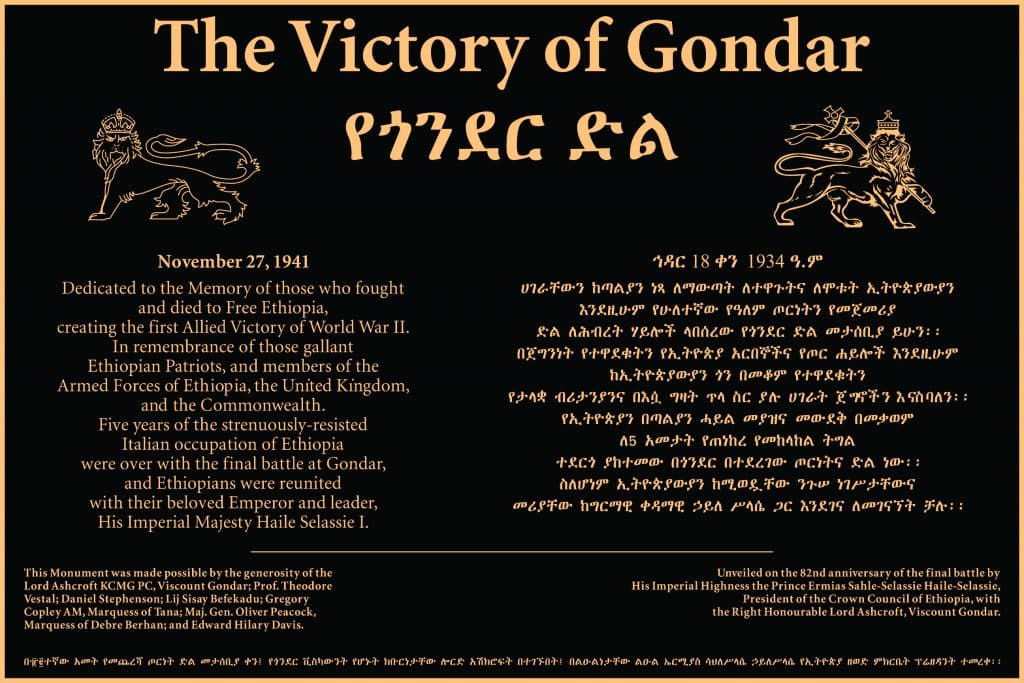
I was blessed, too, this week, to visit my grandfather’s home in exile, Fairfield House, in Bath, and again to reflect on his anguish as he sought a path home to relieve Ethiopia of its invaders. And then, today, I was privileged to be granted the Freedom of the City of London. All of these things are small marks on the pages of history, but they mark the slow rebuilding of the dignity, warmth, and nobility of our nations, Britain and Ethiopia, and our recognition of the importance of the Commonwealth of Nations to which we also owe brotherhood.
It is not from nostalgia that I speak. It is from the reality that today, more than ever since World War II, Britain and Ethiopia seek to restore nobility of purpose to our nations, and this is the most essential ingredient to restoring the dignity of purpose and magnanimity of the souls of all our peoples.
For us, it is critical, because Ethiopia, as I said, remains embroiled in war. The chaos which began with the regicide of my grandfather and — far worse — the destruction of the dreams of the Ethiopian People, is now approaching a climax.
The largest war in the world today, in terms of casualties and displaced persons, is not in Ukraine or the Levant — as tragically important and barbaric as those wars are — it is in Ethiopia, where possibly as many as 1.5-million people have been killed in the past year and 26-millions more have become displaced from their homes. We join the world in mourning the loss of life and the meaning of life in the Ukraine and Israeli situations, because we know the meaning of suffering.
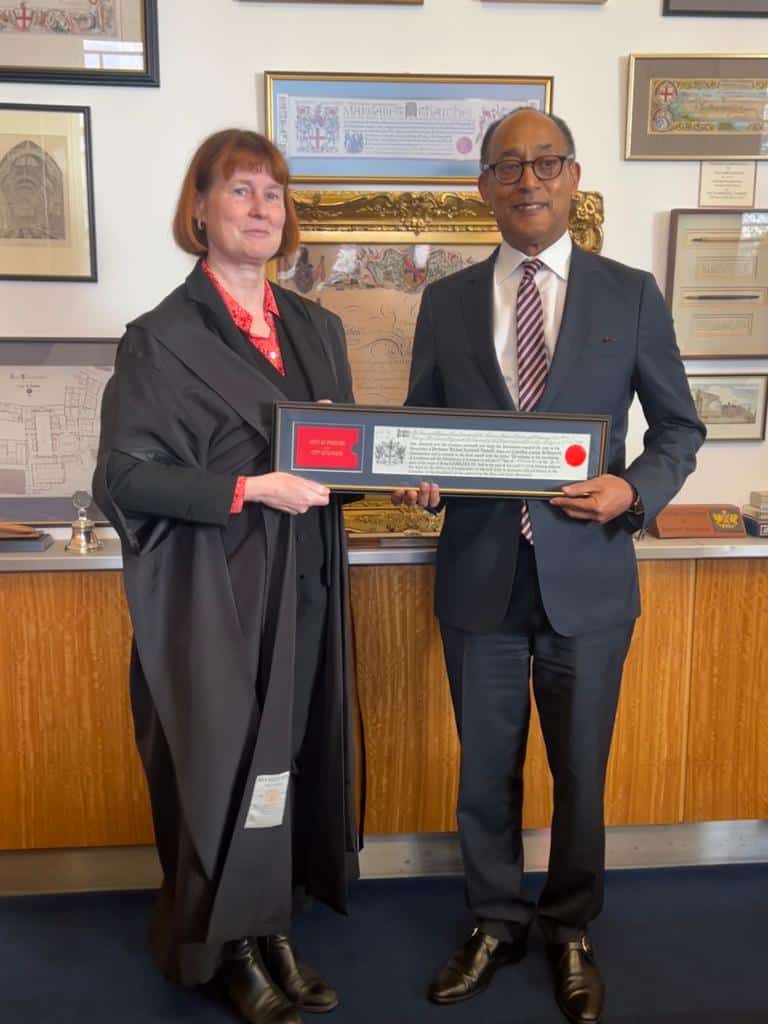
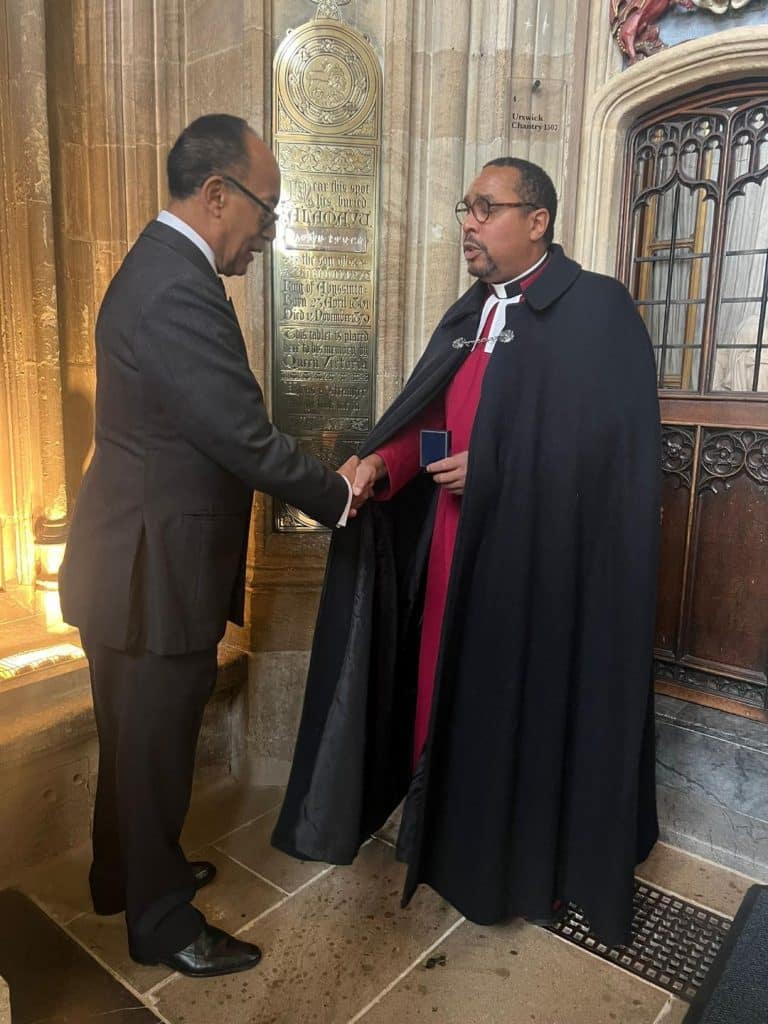
The Ethiopian People are now fighting for their lives, their freedoms, their very identity, and the Crown of Ethiopia is in the midst of this, attempting to give support to the people, and to supporting the Ethiopian Tewahedo Orthodox Christian Church. This war — which is a genocidal attack, by the United Nations definition — goes unreported in the Western media, largely because of the suppression of the internet and news coming from Ethiopia, but I want you to know of it, and to help where you can.
In a moment, I am going to ask my kinsman, Lij Asfaw Sahle, to give you a brief report on the situation inside Ethiopia.
In the meantime, let me again thank you all for being with us tonight. It is a blessing of immeasurable comfort to me and to Princess Saba. And let me thank my friends and colleagues who have made this dinner possible. It is one of the few opportunities for us to gain attention for our cause and to raise some funds for the operation of the Crown Council.
Let me now, ending with my profound thanks to you all, call on Lij Asfaw to talk with you.
